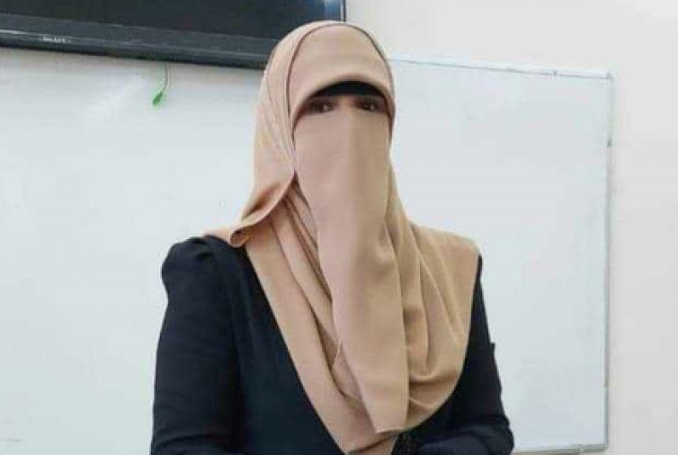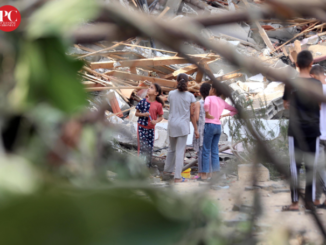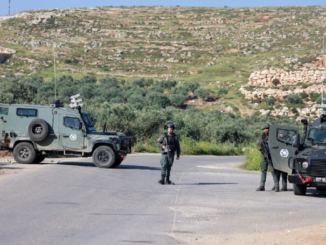
Palestinian journalist Wafa Aludaini was killed, along with her husband and two children, in an Israeli airstrike in Deir Al-Balah, central Gaza early on Monday.
Founder of the October 16th group, Aludaini dedicated her life to mentoring young media professionals in Gaza, emphasizing the importance of truth in reporting.
Aludaini gained prominence for her coverage of the Great March of Return, courageously reporting for several media platforms, including the Palestine Chronicle, where she captured the pain, resistance, and hope of her people.
Through her words and actions, she stood as both a storyteller and a symbol of the Palestinian struggle for freedom.
This is part of an interview we conducted with Aludaini in June 2020.
What is Next for Palestinian Popular Resistance in Gaza?
Wafa Aludaini is a witness to many of Gaza’s recent tragedies and also never-ending resistance. She experienced the violent Israeli occupation, the subsequent blockade on the impoverished Strip, and several wars that resulted in the death and wounding of tens of thousands of Palestinians.
But none of Israel’s wars impacted Aludaini’s life as much as the 2014 onslaught which Israel dubbed ‘Operation Protective Edge.’
Of the nearly 18,000 houses destroyed, two homes, one belonging to Wafaa’s family and the other to her in-laws, were also destroyed by Israel’s bombs.
Gaza’s infrastructure, which was already dilapidated as a result of previous wars and a protracted siege, took a massive beating during the 51-day Israeli bombardment.
The most irreplaceable of all of this tragic loss is human life, as 2,251 Palestinians were killed and over 11,000 wounded, many maimed for life.
War and siege, however, only strengthened Wafa’s resolve as she became more involved in covering news from Gaza, hoping to reveal long-hidden truths and defy mainstream media narratives and popular stereotypes.
During the ‘Great March of Return’, a popular movement that began on March 30, 2018, Wafa joined the protesters, reporting on a daily basis on the killing and wounding of unarmed youth who flocked to the fence that separates besieged Gaza from Israel, to demand their freedom and basic human rights.
Enraged by the refugees’ daily chants of ‘End the siege’, ‘Free Palestine’, and their adamant insistence on their ‘Right of Return’ to their original villages in Palestine, which were ethnically cleansed during Israel’s violent birth in 1948, Israeli snipers opened fire. In the first two years of the March, over 300 Palestinians were reportedly killed, and thousands wounded.
Aludaini was there during the entire ordeal, reporting on the dead and the wounded, consoling bereaved families, and also taking part in an historic moment when all of Gaza rose and united behind a single chant of freedom.
“I am a journalist, but I am also a refugee. My parents were expelled from their village in Palestine, which is now in Israel,” she said.
“Being a journalist in Gaza is not easy, because every single day, you are subjected to (the possibility) of being killed, injured, or arrested by the Israeli occupation forces. In fact, many journalists were murdered by Israeli fire this way.”
On why she chose journalism as a career although she studied English literature at a local Gaza University, Aludaini said that the more she understood mainstream media’s reporting on Palestine, the more frustrated she felt by the unfair depiction of Palestine and the Palestinian struggle.
“Journalists who are (advancing) mainstream media (narratives on Palestine) are, in a way, helping the Israeli occupation in killing more innocent people in Palestine, in particular, in the Gaza Strip. (They) are strengthening the people (Israelis) who expelled us in 1948, encouraging them to violate international law,” Aludaini said.
“So I am asking them to come here, to Palestine, to see for themselves, to see the Apartheid wall, to see the checkpoints, to see what is happening in Israeli jails. Only after they see it with their own eyes, can they tell the truth, because journalists should tell the truth and stand for humanity, regardless of religion and regardless of anything else.”
In a similar tone, Aludaini challenged “defenders of the Israeli occupation” to come to Palestine and to “listen to the people who had their children killed; to those who got expelled from their homes. In every home in Palestine, there is a story of misery, but you will never find (these stories) in mainstream media.”
Regarding the Great March of Return, Aludaini said that the March was “a popular protest where the people of Gaza collectively gathered at the separation fence between Gaza and Israel,” to exhibit various forms of resistance that focused mostly on cultural resistance.
Protesters carried out various forms of “traditional activities, like dancing dabka, singing old songs, cooking Palestinian dishes,” Aludaini said, noting that the most touching of these scenes were those of “elderly Palestinians holding the keys of their homes from which they were forcibly expelled in 1948 during the Nakba,” or the Great Catastrophe.
“This kind of popular resistance is not new for Palestinians (as they) have always used all their means to fight for their rights, to fight (against Israeli military) occupation, like the weekly protests (at the Gaza fence), or (the symbolic acts of) stone-throwing. Even when Gazans resort to armed resistance, people never stop displaying popular (forms) of resistance as well.”
For the full interview, click here.
(The Palestine Chronicle)








